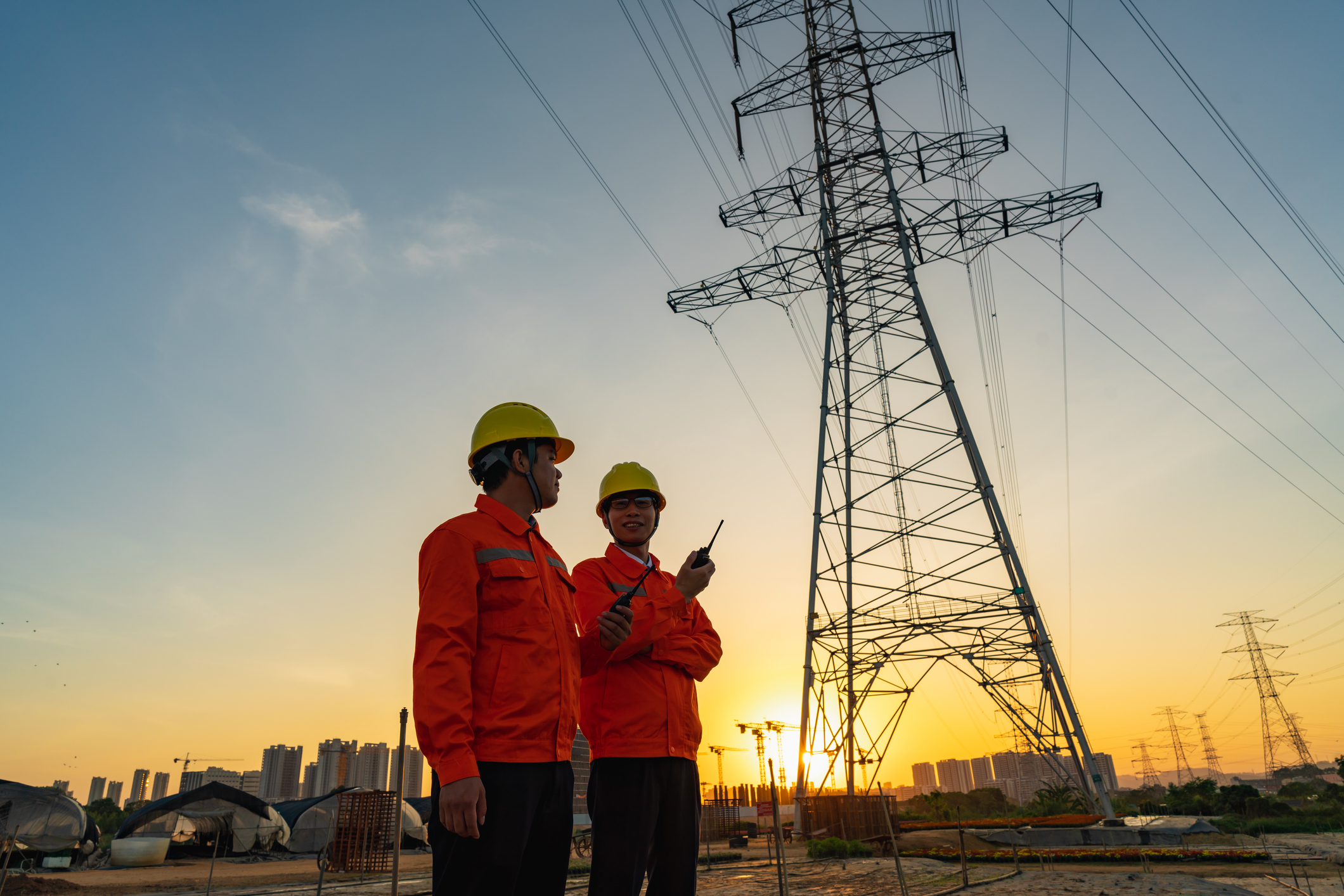
Driving impact: Why the US represents a hive of opportunity for sustainable investors
- 07 May 2024 (5 min read)
KEY POINTS
From renewable energy and water treatment to precision agriculture and artificial intelligence (AI), the US is home to many of the world’s most innovative companies leading the battle against climate change and biodiversity loss.
US policy is creating a very supportive backdrop for such firms too. The Inflation Reduction Act (IRA) was launched in 2022 in a bid to usher in a new wave of growth and innovation. It is hoped it will help the private sector – and investors – decarbonise emissions intensive sectors, as the legislation offers billions of dollars in new spending and tax breaks and directly targets industries - including among others, clean energy, transportation and agriculture.
And certainly, investment is on the up since its inception. The US saw $239bn in new investment in the manufacture and deployment of clean energy, clean vehicles, building electrification and carbon management technology in 2023, up 38% from 2022, according to research group Clean Investment Monitor. A record $67bn of this occurred in the fourth quarter of 2023, a 40% increase on the same period in 2022.1
All of this is helping to enable further innovations that can deliver positive outcomes for both the planet and wider society – which in turn is creating a myriad of potentially compelling long-term investment opportunities. We highlight some of those key areas and innovators, below.
- PGEgaHJlZj0iaHR0cHM6Ly93d3cuY2xlYW5pbnZlc3RtZW50bW9uaXRvci5vcmcvIj5UaGUgQ2xlYW4gSW52ZXN0bWVudCBNb25pdG9yPC9hPg==
Smart grids and electrification
Fossil fuels are the largest contributor to global warming, accounting for over 75% of greenhouse gas emissions2 - and energy-based global carbon emissions rose to a record high in 2023.3 As such, the transition to sustainable energy is critical. However, there has been encouraging progress in the shift to renewables – from 2019 to 2023, growth in clean energy was twice that of fossil fuels, according to the International Energy Agency (IEA).4
The world’s largest economy is home to several companies that are leaders in this field, such as NextEra Energy, the world’s largest generator of renewable wind and solar energy.5 The firm also invests in grid resilience, smart meters and intelligent devices, which help improve reliability, while encouraging energy saving initiatives to help lower usage and reduce costs for customers.
Electrification – replacing technologies and processes that rely on fossil fuels with an electrically-powered equivalent – is also expected to play a significant role in the energy transition. In its Net Zero by 2050 scenario, the IEA expects the share of electricity in total energy consumption to grow from 20% in 2022 to over 27% in 2030.6
Its highly anticipated that companies in this space will significantly benefit from this growth. Eaton, a US-listed power management company, is helping drive developments in clean energy. It provides electrification solutions including power distribution systems, electrical components and connectivity for residential, commercial and industrial applications, and enables customers to use artificial intelligence to improve energy efficiency.
Reaching net zero also requires modernising energy infrastructure such as power grids. Texas-based Quanta Services specialises in designing, installing and maintaining network infrastructure including for electricity and renewable energy. It is part of a wind power project that is forecast to be the US’s biggest clean energy infrastructure project, bringing renewable power to more than three million people.7 We believe Quanta’s involvement in large-scale renewables and energy storage projects as well as infrastructure development for electric vehicles and hydrogen distribution positions the group as a key contributor to the US energy transition.

- PGEgaHJlZj0iaHR0cHM6Ly93d3cudW4ub3JnL2VuL2NsaW1hdGVjaGFuZ2Uvc2NpZW5jZS9jYXVzZXMtZWZmZWN0cy1jbGltYXRlLWNoYW5nZSI+Q2F1c2VzIGFuZCBFZmZlY3RzIG9mIENsaW1hdGUgQ2hhbmdlIHwgVW5pdGVkIE5hdGlvbnM8L2E+
- PGEgaHJlZj0iaHR0cHM6Ly93d3cuaWVhLm9yZy9uZXdzL21ham9yLWdyb3d0aC1vZi1jbGVhbi1lbmVyZ3ktbGltaXRlZC10aGUtcmlzZS1pbi1nbG9iYWwtZW1pc3Npb25zLWluLTIwMjMiPk1ham9yIGdyb3d0aCBvZiBjbGVhbiBlbmVyZ3kgbGltaXRlZCB0aGUgcmlzZSBpbiBnbG9iYWwgZW1pc3Npb25zIGluIDIwMjMgLSBOZXdzIC0gSUVBPC9hPg==
- PGEgaHJlZj0iaHR0cHM6Ly93d3cuaWVhLm9yZy9uZXdzL21ham9yLWdyb3d0aC1vZi1jbGVhbi1lbmVyZ3ktbGltaXRlZC10aGUtcmlzZS1pbi1nbG9iYWwtZW1pc3Npb25zLWluLTIwMjMiPk1ham9yIGdyb3d0aCBvZiBjbGVhbiBlbmVyZ3kgbGltaXRlZCB0aGUgcmlzZSBpbiBnbG9iYWwgZW1pc3Npb25zIGluIDIwMjMgLSBOZXdzIC0gSUVBPC9hPg==
- PGEgaHJlZj0iaHR0cHM6Ly93d3cuaW52ZXN0b3IubmV4dGVyYWVuZXJneS5jb20vbmV3cy1hbmQtZXZlbnRzL25ld3MtcmVsZWFzZXMvMjAyNC8wMi0xNi0yMDI0LTE3MDcwMTg4OCI+TmV4dEVyYSBFbmVyZ3kgYm9hcmQgZGVjbGFyZXMgcXVhcnRlcmx5IGRpdmlkZW5kIGFuZCBjb250aW51ZXMgYWJvdmUtYXZlcmFnZSB0YXJnZXRlZCBncm93dGggcmF0ZSBpbiBkaXZpZGVuZHMgcGVyIHNoYXJlIHRocm91Z2ggYXQgbGVhc3QgMjAyNiDigJMgTmV4dEVyYSBFbmVyZ3ksIEluYy48L2E+
- PGEgaHJlZj0iaHR0cHM6Ly93d3cuaWVhLm9yZy9lbmVyZ3ktc3lzdGVtL2VsZWN0cmljaXR5L2VsZWN0cmlmaWNhdGlvbiI+RWxlY3RyaWZpY2F0aW9uIC0gRW5lcmd5IFN5c3RlbSAtIElFQTwvYT4=
- PGEgaHJlZj0iaHR0cHM6Ly9pbnZlc3RvcnMucXVhbnRhc2VydmljZXMuY29tL25ld3MtZXZlbnRzL3ByZXNzLXJlbGVhc2VzL2RldGFpbC8zMzgvcXVhbnRhLXNlcnZpY2VzLXNlbGVjdGVkLWZvci10aGUtc3VuemlhLXRyYW5zbWlzc2lvbi1hbmQtc3VuemlhLXdpbmQtcHJvamVjdHMiPlF1YW50YSBTZXJ2aWNlcyBTZWxlY3RlZCBmb3IgdGhlIFN1blppYSBUcmFuc21pc3Npb24gYW5kIFN1blppYSBXaW5kIFByb2plY3RzIDo6IFF1YW50YSBTZXJ2aWNlcywgSW5jLiAoUFdSKTwvYT4=
Protecting biodiversity
Protecting the earth’s biodiversity ecosystem is paramount. Analysis shows that $44trn of economic value generation – over half the world’s total GDP – is dependent on nature and its services. However, almost 70% of the world’s biodiversity has been lost in the past five decades, according to the World Economic Forum.8
The global food system is the primary driver of biodiversity loss9 so there are many opportunities to improve processes, for example in agriculture. Equipment manufacturer Deere is playing a key role here through the development of innovative solutions such as its ‘See & Spray’ system which uses computer vision and machine learning to specifically target weeds in corn, soybean and cotton. This can reduce the use of herbicides by more than two-thirds10 – a boon for the environment and also bringing a cost benefit to farmers.
Meanwhile around one in four people on the planet – some 2.2 billion – lack safe drinking water. At the same time, 40% of water is lost or not accounted for in urban water supply systems through leakages, burst pipes or inaccurate meters – which has an environmental, as well as a service level and economic, impact.11
Water technology company Xylem is one of the US companies tackling this problem, offering solutions that help wastewater management, reduce losses, and enable water treatment and recycling. Its solutions can also help increase resilience to extreme weather events, for example by preventing sewers from overflowing, and aid in reducing the number of illnesses relating to water pollution.

- PGEgaHJlZj0iaHR0cHM6Ly93d3cud2Vmb3J1bS5vcmcvYWdlbmRhLzIwMjQvMDMvaG93LWlubm92YXRpb24tY2FuLXNhdmUtdGhlLXdvcmxkLXMtcmVtYWluaW5nLWJpb2RpdmVyc2l0eS8iPkhvdyBpbm5vdmF0aW9uIGNhbiBzYXZlIHRoZSB3b3JsZOKAmXMgcmVtYWluaW5nIGJpb2RpdmVyc2l0eSB8IFdvcmxkIEVjb25vbWljIEZvcnVtICh3ZWZvcnVtLm9yZyk8L2E+
- PGEgaHJlZj0iaHR0cHM6Ly93d3cudW5lcC5vcmcvbmV3cy1hbmQtc3Rvcmllcy9wcmVzcy1yZWxlYXNlL291ci1nbG9iYWwtZm9vZC1zeXN0ZW0tcHJpbWFyeS1kcml2ZXItYmlvZGl2ZXJzaXR5LWxvc3MiPk91ciBnbG9iYWwgZm9vZCBzeXN0ZW0gaXMgdGhlIHByaW1hcnkgZHJpdmVyIG9mIGJpb2RpdmVyc2l0eSBsb3NzICh1bmVwLm9yZyk8L2E+
- PGEgaHJlZj0iaHR0cHM6Ly93d3cuZGVlcmUuY29tL2VuL3NwcmF5ZXJzL3NlZS1zcHJheS11bHRpbWF0ZS8iPlNlZSAmYW1wOyBTcHJheeKEoiBVbHRpbWF0ZSB8IFByZWNpc2lvbiBBZyB8IEpvaG4gRGVlcmUgVVM8L2E+
- PGEgaHJlZj0iaHR0cHM6Ly9ibG9ncy53b3JsZGJhbmsub3JnL2VuL3BwcHMvcGVyZm9ybWFuY2UtYmFzZWQtY29udHJhY3RzLW9mZmVyLWEtcGF0aHdheS10by1lZmZpY2llbnQtd2F0ZXItbSI+UGVyZm9ybWFuY2UtYmFzZWQgY29udHJhY3RzIG9mZmVyIGEgcGF0aHdheSB0byBlZmZpY2llbnQgd2F0ZXIgbWFuYWdlbWVudCAod29ybGRiYW5rLm9yZyk8L2E+
Tech enablers underpinning these advances
Underpinning many of these companies and services are the technology enablers, which are powering solutions to environmental and social challenges. Chipmaking giant Nvidia develops advanced processors used to train and implement AI systems that are accelerating innovation across multiple sectors, such as healthcare and precision agriculture. Its solutions are also used in areas such as climate prediction, disaster management and autonomous vehicles.
Meanwhile design software and the use of digital twins are becoming increasingly important in the transition to net zero and delivery of more sustainable outcomes. For example, digital twins allow companies to create a virtual representation of an object or system to simulate and analyse, providing valuable insights for the design and operation of products. Software development company Bentley Systems has helped design more efficient electricity grids and can help simulate how infrastructure assets reacts under different operating environments or climate change scenarios, reducing risk.
Identifying the leaders
Ultimately, thanks to industrial policy support and rising demand there are a growing number of potential opportunities in the US equity market for investors to help drive the energy transition, protect biodiversity and support people as well as the planet. The US is home to some of the most innovative, quality companies in this space which have strong balance sheets, demonstrable track records and the potential for further growth.
Identifying the likely winners of the transition to a more sustainable economy requires careful analysis and is a key part of investing in these structural trends. This can allow investors to build portfolios that make a material positive impact on people and the planet, while providing the potential for financial returns.
References to companies are for illustrative purposes only and should not be viewed as investment recommendations.
Disclaimer
This website is published by AXA Investment Managers Asia (Singapore) Ltd. (Registration No. 199001714W) for general circulation and informational purposes only. It does not constitute investment research or financial analysis relating to transactions in financial instruments, nor does it constitute on the part of AXA Investment Managers or its affiliated companies an offer to buy or sell any investments, products or services, and should not be considered as solicitation or investment, legal or tax advice, a recommendation for an investment strategy or a personalized recommendation to buy or sell securities. It has been prepared without taking into account the specific personal circumstances, investment objectives, financial situation or particular needs of any particular person and may be subject to change without notice. Please consult your financial or other professional advisers before making any investment decision.
Due to its simplification, this publication is partial and opinions, estimates and forecasts herein are subjective and subject to change without notice. There is no guarantee forecasts made will come to pass. Data, figures, declarations, analysis, predictions and other information in this publication is provided based on our state of knowledge at the time of creation of this publication. Whilst every care is taken, no representation or warranty (including liability towards third parties), express or implied, is made as to the accuracy, reliability or completeness of the information contained herein. Reliance upon information in this material is at the sole discretion of the recipient. This material does not contain sufficient information to support an investment decision.
All investment involves risk, including the loss of capital. The value of investments and the income from them can fluctuate and investors may not get back the amount originally invested. Past performance is not necessarily indicative of future performance.
Some of the Services and/or products may not be available for offer to retail investors.
This publication has not been reviewed by the Monetary Authority of Singapore.





